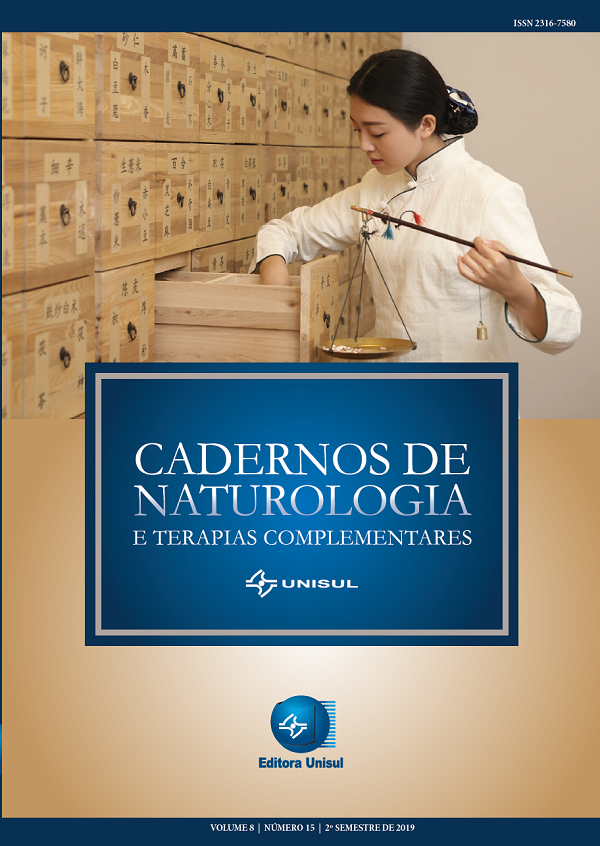Perception of users on Integrative and complementary practices: a study of self-massage intervention in a northeastern capital
DOI:
https://doi.org/10.19177/cntc.v8e1520199-16Keywords:
Complementary Therapies, Massage, Unified Health SystemAbstract
Introduction: Self-massage is highlighted in the National Policy on Integrative and Complementary Practices (NPICP) as a proposal for an effective and simple learning therapeutic method that reinforces self-care and autonomy at prevention, promotion and recovery of health perspectives. Objective: To describe self-massage practitioners’ perceptions at NPICP reference service in a northeastern capital. Materials and method: A cross - sectional and descriptive study with qualitative approach, conducted with users aged 18 years and over, weekly self – massage guided practice participants at the Integrated Health Service of Recife. @e data were collected from socioeconomic forms and semi-structured interviews recorded and transcribed, later analysis was made by Discourse of the Collective Subject. Results: @e predominance was female, mean age 63.1 ± 10.5 years, chronic pathology profile, family income between one and two minimum wages and experience with practice between one and two years. @e speeches highlight the perception of improvements related to the main complaints, relaxation, greater self-esteem and pain reduction, which was an incentive for individual practice and its dissemination and achievement among friends and family. Existence of access barriers due to the time, distance of the place and queues of waiting was mentioned. Final considerations: Self-massage was evidenced as a positive practice on the body and well-being subjects’ perceptions in a scenario that goes against the current biomedical model. It is hopedto contribute to decision-making aimed at expanding the ICPs development in health care networks.Downloads
Published
2021-03-17
Issue
Section
Original Articles


